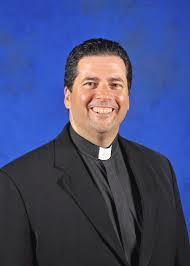 Father James J. Maher is president of Niagara University.
Father James J. Maher is president of Niagara University.Having a world-class athletic program is a luxury that few higher education institutions enjoy. This can be a great source of pride for a president and his or her institution, and can galvanize current students and alumni alike. As I began to conduct background research for this interview, the first question that I had was, “What is the president’s role in their institution’s athletic program?” In order to get an answer to this question, among others, I sat down with Rev. James J. Maher, C.M., president of Niagara University in upstate New York, near Buffalo.
Q: As college president, what is your level of involvement the university’s athletic program?
A: I am very involved. Our director of athletics, Simon Gray, reports directly to me and sits as a member of the president’s cabinet. As president, I review regularly all areas of the terrain of athletics, academic development, student welfare, civic and mission engagement. When I am on campus I try to attend as many of the competitions and possible. As well, I do meet regularly with our student-athlete advisory council.
Q: How does Niagara athletics contribute to the greater institution?
A: Our student-athletes, coaches, administrators and staff are great ambassadors for our university. They are great supporters of both our Vincentian mission of service to the marginalized. In addition, they are very fine and dedicated students, many of whom are engaged in the highest level of undergraduate scholarship and research with our faculty. They are a great help to our efforts to recruit and enroll students and student athletes to Niagara University.
Q: The country and the world, for that matter, are still feeling the effects of our most recent economic crisis. How will this impact Niagara?
A: It is still too early to tell; we will know better in early October and, for certain, after the NCAA meeting in January. One thing is very clear; the landscape is changing and all [of] us need to think differently about athletics in university life, student-athlete support and development.
Q: In college athletics, general costs are escalating and coaching salaries keep growing. Any thoughts on this subject?
A: It is a concern. [I have] two thoughts on the matter: 1) We must continue to challenge ourselves to situate athletics in the context and life of the university. When athletics moves out of that realm in any aspect it becomes highly problematic. 2) A particular challenge is related to the growing commercialization of athletics. Who really regulates and monitors the commercialization of athletics and student-athletes? I think that is the biggest structural challenge for universities in Division I athletics and for the NCAA. There does not appear to be an independent party in the orbit of Division I athletics who is not benefiting in one way shape or form. In my view, we must address that weakness.
Q: There have long been discussions about paying student-athletes a stipend in addition to the tuition and such.
A: I think it is very worthwhile having this discussion. Even more to the point, how do we help and promote student-athlete welfare while they are student-athletes? [How do we] help them to develop to prepare for the workforce and to make sustainable and meaningful contributions to our global society?
Q: Any final comments or remarks you’d like to make?
A: Yes, athletics provides wonderful opportunities for life development. Being part of athletic teams teaches our student-athletes to overcome failure and distress and be resilient, to embrace one’s role on a team and mesh with the roles of others, and to work with people of different backgrounds on common projects and goals. More importantly, it teaches students to work as hard as they can, but to have faith in their relationship with others. We, as university and college presidents, need to promote those lessons and use athletics as part of our campus pedagogy.
Dr. Matthew Lynch is the Dean of Education, Psychology, and Interdisciplinary Studies at Virginia Union University. He has focused his career on researching topics related to educational policy, school leadership and education reform, particularly in the urban learning environment.





















